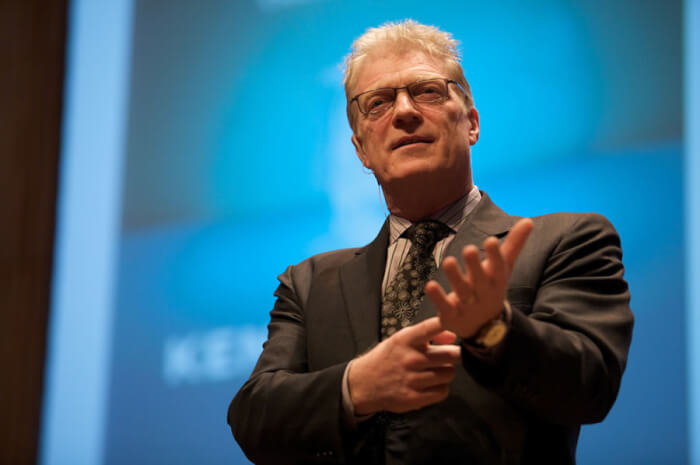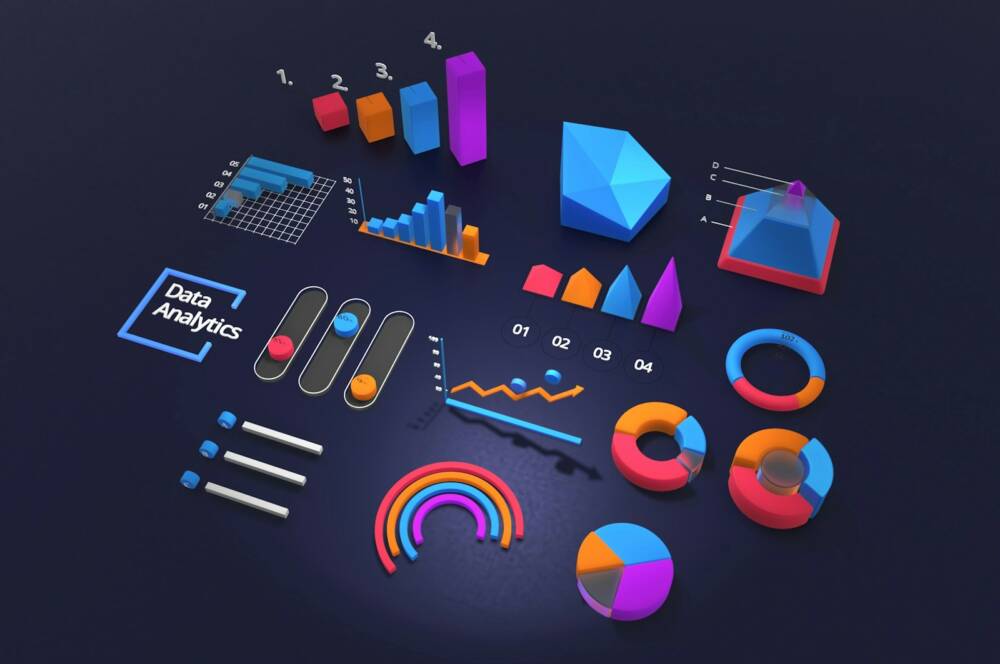There is scientific evidence that PowerPoint – not the software, but the concept – is not very productive. And it is shown by the fact that great communicators don’t use PowerPoint. The problem is that displaying words on a screen while speaking (regardless of whether you’re reading or showing the pictures) doesn’t increase audience understanding and retention. Therefore, time spent building a PowerPoint presentation is wasted.
In any case, the world’s truly great communicators have long since abandoned PowerPoint (and its clones) in favor of non-slide approaches. Here are four alternative methods:
1. Go totally without slides (Sir Ken Robinson)
One of the most watched (62 million views) and most loved TED Talks of all time features educational reformer Sir Ken Robinson. Rather than clogging up his message with slides, he presents his ideas in a way so engaging and clear that his words go to the heart and stay in the brain.
While this oratory approach requires effort to create and rehearse, it is effort that really increases audience understanding and retention. As an added benefit, a speech without slides focuses on the speaker rather than the screen, creating a deeper emotional connection between speaker and audience.
Another advantage is that when people don’t know they’re going to receive a slide handout, they’re much more likely to take notes, an activity that greatly increases retention, especially when done with a pen or pencil.
2. Start with a briefing document (Jeff Bezos)
Instead of giving presentations at his meetings, Jeff Bezos requires the caller to prepare a 1-3 page briefing document containing the relevant ideas and requested decisions. Participants spend the first five minutes silently reading the document and then lead a brief discussion of its content.
Creating a fully formed, readable, self-contained document requires you to carefully consider your ideas and then express yourself clearly. This is more work than creating an outline of bullets, but it ensures that you communicate more accurately, which is beneficial for everyone. That shows us great communicators don’t use PowerPoint.
Also, a summary document is more useful to take with you than a set of slides (or a video of your presentation) because it contains fully formed thoughts that can be read and absorbed quickly. The hard copy also provides a place where participants can take notes.
3. Provide workbooks to fill in the blanks (Tony Robbins)
One of the most memorable performances I’ve ever experienced was at a Tony Robbins event a few years ago. Robbins, who has recently been controversial but remains a phenomenally effective communicator, distributed bound books containing the points he planned to make, but with blank areas for the audience to fill in the missing parts.
Creating this type of workbook takes about the same effort as creating a slideshow, but it makes the presentation more memorable rather than harder to understand. In fact, I still remember many of the points that Robbins made … more than two decades later.
4. Avoid meetings altogether (Mark Cuban)
Finally, there’s the Gordian solution: just stop holding meetings altogether. It is notorious that Mark Cuban only goes to meetings when he is on the TV show Shark Tank. Otherwise, he conducts business entirely via email.
I’m not sure this approach is practical for everyone, but it’s worth it, it’s been over a year since I’ve been submitted to a PowerPoint presentation. (Although I gave it another day, which in retrospect was a method of communication I should have avoided.)
Yes, great communicators don’t use PowerPoint. But let’s face it: 90 percent of the time you can ask a would-be presenter “what’s the gist, in three sentences” and you’ll get more conversational results than if you watched an entire PowerPoint presentation. Rule of thumb: Instead of PowerPoint, get to the point.
MKTPlace is a leading digital and social media platform for traders and investors. MKTPlace offers premiere resources for trading and investing education, digital resources for personal finance, news about IoT, AI, Blockchain, Business, market analysis and education resources and guides.














